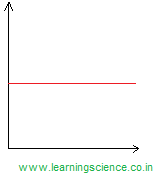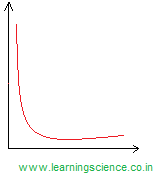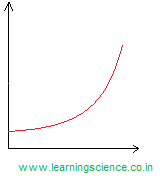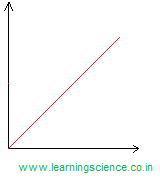[Solved] JEXPO 2018 Physics Question Paper
[Solved] JEXPO 2018 Physics Question Paper
JEXPO 2018 Chemistry Question Paper with Solution
Q.1) What is the angle between incident and reflected rays when a ray of light is incident normally on a plane mirror?
 90°
90°
 45°
45°
 0°
0°
 180°
180°
Answer
Correct Answer:  180°
180°
Explanation
When ray of light incident normally on a plane mirror, then incident angle = 0°.
∴ Reflection angle also be 0° [according to the 2nd law of reflection of light].
Again, we know that in that case direction of incident ray and reflected ray are opposite to each other.
Hence, the required angle must be 180°.
Q.2) Which mirror has a wider field of view?
 cylindrical mirror
cylindrical mirror
 concave mirror
concave mirror
 plane mirror
plane mirror
 convex mirror
convex mirror
Answer
Correct Answer:  convex mirror
convex mirror
Explanation
Convex mirror because a mirror is diverging in nature. Light rays incident at its extreme corners gets diverged following laws of reflection. Hence if we draw the diagram we can clearly understand that the reflected rays follow a wider path. While in case of a plane mirror the divergence is not so large.
Q.3) An object of size 2.0 cm is placed perpendicular to the principal axis of a concave mirror. The distance of the object from the mirror equals the radius of curvature. The size of the image will be
 1.5 cm
1.5 cm
 0.5 cm
0.5 cm
 1.0 cm
1.0 cm
 2.0 cm
2.0 cm
Answer
Correct Answer:  2.0 cm
2.0 cm
Explanation
Size of the image must be same as the object size if an object is placed perpendicular to the principal axis of a concave mirror at a distance equal to 2f or r (radius of curvature).
Q.4) On a rainy day, small oily films on water show brilliant colours. This is due to
 scattering
scattering
 interference
interference
 dispersion
dispersion
 polarisation
polarisation
Answer
Correct Answer:  interference
interference
Explanation
No explanation
Q.5) Variation of resistance of semiconductor with temperature is represented by which graph?
Answer
Explanation
For semiconductor, resistance decreases with increases the temperature.
Q.6) How much work is done in moving 4C across two points having potential difference 10V?
 40J
40J
 2.5J
2.5J
 0.4J
0.4J
 10J
10J
Answer
Correct Answer:  40J
40J
Explanation
Work-done in moving a electrical charge, W = Potential difference (V) × amount of charge (Q) ⇒ 10 × 4 Joules = 40 J
Q.7) Rectifier is used to convert
 AC to DC
AC to DC
 low voltage to high voltage
low voltage to high voltage
 DC to AC
DC to AC
 None of those
None of those
Answer
Correct Answer:  AC to DC
AC to DC
Explanation
No explanation.
JEXPO 2018 Chemistry Question Paper with Solution
Q.8) If a 24V and a 10V battery series opposing, total voltage is
 34V
34V
 10V
10V
 24V
24V
 14V
14V
Answer
Correct Answer:  14V
14V
Explanation
According to the question, both the batteries are connected in opposite direction.
Thus, total voltage = (24 − 10) V ⇒ 14 V
Q.9) What is the equivalent resistance between A and B?
 3 Ω
3 Ω
 2 Ω
2 Ω
 4 Ω
4 Ω
 1 Ω
1 Ω
Answer
Correct Answer:  2 Ω
2 Ω
Explanation
4Ω and 2Ω are connected in series [see figure].
∴ Equivalent resistance of 4Ω and 2Ω resistances = (4 + 2)Ω ⇒ 6Ω.
Again 6Ω and 3Ω resistances are connected in parallel combination.
Thus, the required equivalent resistance between A and B =
6×36+3=2 Ω
Q.10) A car runs on a circular track at a constant speed. The circular track has a radius of 100 m. If the car takes 62.8 seconds on each lap, it’s average speed is
 20 ms−1
20 ms−1
 5 ms−1
5 ms−1
 10 ms−1
10 ms−1
 Zero
Zero
Answer
Correct Answer:  10 ms−1
10 ms−1
Explanation
By the definition of average speed, we have
Average speed =
total distance total time⇒
circumference of circular track total time⇒
2×3.14×100 62.8ms−1 = 10 ms−1
Q.11) Two persons start running towards each other from two points that are 120 m apart. First person runs with a speed of 5 m/s and the other with a speed of 7 m/s. Both the persons meet after
 10s
10s
 24s
24s
 48s
48s
 1 min
1 min
Answer
Correct Answer:  10s
10s
Explanation
Let, 1st person covered S1 m distance in time “t” seconds while 2nd person covered (120 − S1) m in “t” seconds.
By the mathematical relation of speed, distance and time, we have
Distance = Speed × Time
∴ S1 = 5t
For 2nd person, 120 − S1 = 7t
Now, substituting the value of S1, we have
⇒ 120 − 5t = 7t
⇒ 12t = 120
∴ t = 10 seconds.
Q.12) A stone is dropped into a well in which the level of water is 8 m below the top of the well. If v is the velocity of sound in air, the time after which the splash is heard will be given by

2H g + H v

2H v

H 2g + 2H v

2Hv+Hg
Answer
Correct Answer: 
2H g + H v
Explanation
The required time = time to fall a stone from the top of well to surface of water (T1) + time to cover H m by sound (T2)
Calculation of T1
By the formulas of kinematics, we have
(Vstone)2 = (ustone)2 + 2gH
⇒ 2gH [∵ initial velocity of stone, ustone = 0]
∴
V stone = 2gHNow, T1 =
V stone g⇒
2gH g=
2H g[ using V = u + gt]
Calculation of T2
We have, Distance = Speed × Time.
∴ T2 =
H vHence, the required total time = T1 + T1 ⇒
2Hg+Hv
Q.13) If time-displacement graph of a particle is parallel to its time axis, velocity of the particle is
 infinity
infinity
 equal to acceleration
equal to acceleration
 unity
unity
 zero
zero
Answer
Correct Answer:  zero
zero
Explanation
By the definition of velocity (i.e. instantaneous velocity), we have
Instantaneous Velocity =
Change in Displacement Change in Time
According to the question, displacement is constant with respect to time [see graph].
∴ Change in displacement w.r.t. time = 0.
Hence, Velocity =
0 Change in Time
⇒ 0 (zero).
Q.14) M gm of ice at 0°C is to be converted to water at 0°C. If L is the latent heat of fusion of ice, the quantity of heat required for the above operation would be
 ML calorie
ML calorie

M L
calorie
 None of those
None of those

LM
Answer
Correct Answer:  ML calorie
ML calorie
Explanation
Heat required to change the state of matter, Q = mass of substance (M) × latent heat (L)
∴ Q = ML calories. (Ans.)
Q.15) When it is raining, dew point is
 room temperature
room temperature
 50°C
50°C
 100°C
100°C
 0°C
0°C
Answer
Correct Answer:  0°C
0°C
Explanation
No explanation.
Q.16) How much ice must be added to 100 gm of water at 30°C in order to reduce its temperature to 20°C?
 10 g
10 g
 400 g
400 g
 80 g
80 g
 None of those
None of those
Answer
Correct Answer:  10 g
10 g
Explanation
Let, ‘m’ gm ice at 0°C must be added with 100 gm of water at 30°C.
According to the principle of Calorimetry, we have
Total heat released = Total heat gained.
∴ Heat released by water at 30°C to 20°C = Heat gained by ice at 0°C to water at 0°C + Heat gained by water at 0°C to 20°C
100 × 1 × (30 − 20) = m × 80 + m × 1 × (20 − 0) [Latent heat of fusion of ice = 80 cal/gm and sp. heat of ice = sp. heat of water = 1 ]
1000 = 80m + 20m
∴ m = 10 gm.
Q.17) Which of the following substances has greatest specific heat?
 Iron
Iron
 Water
Water
 Mercury
Mercury
 Copper
Copper
Q.18) A bottle of water at 0°C is opened on the surface of the Moon. What will happen?
 No change will occur
No change will occur
 Water freezes
Water freezes
 Water decomposes into O2 and H2
Water decomposes into O2 and H2
 Water will boil
Water will boil
Answer
Correct Answer:  Water freezes
Water freezes
Explanation
We know that boiling point of substances get decreases with decrease of pressure.
Since, the atmospheric pressure is very low in the moon. Thus, when the lid of water bottle is opened the boiling point of water gets fall very fast and suddenly water will boil and due to certain change in state of water from liquid to vapor, it will take latent heat from the vapor or bottle or both and hence it will convert into ice. [I hope it is clear to all]
Q.19) Freezing mixture is a mixture
 which freezes at 0°C
which freezes at 0°C
 which solidifies water
which solidifies water
 which produces very low temperature
which produces very low temperature
 which is used in medicine
which is used in medicine
Answer
Correct Answer:  which produces very low temperature
which produces very low temperature
Explanation
No explanation.
Q.20) The number of joules contained in 1 kWh is
 36 × 102
36 × 102
 36 × 103
36 × 103
 3.6 × 106
3.6 × 106
 36 × 104
36 × 104
Answer
Correct Answer:  3.6 × 106
3.6 × 106
Explanation
1 kWh = 1000 watts × 1 hour
⇒ 1000 watts × 3600 seconds
⇒ 3.6 × 106 Joules. [ 1 Joule = 1 watt × 1 second]
Q.21) In case of negative work, the angle between force and displacement is
 180°
180°
 270°
270°
 90°
90°
 0°
0°
Answer
Correct Answer:  180°
180°
Explanation
When direction of displacement(s) is opposite to the direction of applied force (F), then work-done is said to be negative work-done.
Now, by the mathematical equation of work-done (W), we have
W = F × S × cosθ [ θ = angle b/w force and displacement]
Now, for θ = 180° , cosθ = − 1
Hence, W ⇒ −ve.
Q.22) 3730 watts = _____ H.P.
 2
2
 5
5
 746
746
 6
6
Answer
Correct Answer:  5
5
Explanation
We have, 1 H.P. (Horse Power) = 746 watts.
Hence, 3730 watts =
3730746=5 H.P.
Q.23) An automobile engine of mass m accelerates and a constant power P is applied by the engine. The instantaneous speed of the engine will be

Pt 2m

( Pt 2m ) 1 2

2Pt m

(2Ptm)12
Answer
Correct Answer: 
( 2Pt m ) 1 2
Explanation
We have, instantaneous power, P = Force × Velocity
⇒ P = (ma)v [ Force = mass (m) × acceleration (a); and v = velocity]
P =
m( dv dt )vIntegrating both sides, we have
⇒
∫ P m dt= ∫ vdv⇒
P m ( t )= v 2 2∴ v =
(2Ptm)12
Q.24) If K.E. of a body increases by 0.1%, the present increase in momentum would be
 0.05%
0.05%
 1%
1%
 0.1%
0.1%
 10%
10%
Answer
Correct Answer:  0.05%
0.05%
Explanation
Given that, % change in K.E., △Ek% = 0.1%
⇒
E k2 − E k1 E k1 ×100%=0.1%⇒
E k2 − E k1 E k1 = 0.1 100⇒
E k2 E k1 −1= 1 1000⇒
E k2 E k1 = 1001 1000⇒
( P 2 ) 2 2m ( P 1 ) 2 2m = 1001 1000 [∵ K.E., Ek = p2⁄2m , where P = momentum and m = mass] ⇒
( P 2 ) 2 ( P 1 ) 2 = 1001 1000⇒
P 2 P 1 = 10010 10000⇒
P 2 P 1 = 100.05 100⇒
P 2 − P 1 P 1 ×100%=
100.05−100 100 ×100%⇒ △P % = 0.05%
∴ % Change in momentum (△P) = 0.05%
Q.25) A bomb of 12 kg explodes into two pieces of masses 4 kg and 8 kg. The velocity of 8 kg is 6 m/s. The kinetic energy of the other mass is
 32J
32J
 24J
24J
 128J
128J
 288J
288J
Answer
Correct Answer:  288J
288J
Explanation
By the Conservation law of momentum, we have
m1v1 = m2v2 [ where, m1 = 4 kg, m2 = 8 kg, v1 = velocity of 4 kg mass and v2 = 6 m/s ]
⇒ v1 =
m 2 v 2 m 1⇒
8×6 4 =12 m/sHence, K.E. of 4 kg mass =
1 2 ×4× ( 12 ) 2⇒ 288 Joules. (Ans.)
Q.26) A raised hammer possesses
 K.E. only
K.E. only
 Electrical energy
Electrical energy
 Gravitational P.E.
Gravitational P.E.
 Sound energy
Sound energy
Answer
Correct Answer:  Gravitational P.E.
Gravitational P.E.
Explanation
No explanation.
Q.27) How many fundamental units are present in the SI system of units?
 5
5
 6
6
 8
8
 7
7
Q.28) The ratio of one micron to one nanometer is
 10−6
10−6
 10−3
10−3
 106
106
 103
103
Answer
Correct Answer:  103
103
Explanation
1 micron = 10−6 meter and 1 nanometer = 10−9 meter
∴ The required ratio =
10 −6 10 −9⇒ 10−6 + 9 = 103.
Q.29) One second is defined as _____ part of a mean solar day.

1 86,400

1 20,000

1 96,400

130,000
Answer
Correct Answer: 
1 86,400
Explanation
By the definition of mean solar day, we have
1 mean solar day = (24 × 60 × 60) seconds ⇒ 86,400 seconds.
Hence, 1 second =
1 86,400part of mean solar day.
Q.30) Relative density of mercury is
 1
1
 0.8
0.8
 2.5
2.5
 13.6
13.6
Answer
Correct Answer:  13.6
13.6
Explanation
No explanation.
Q.31) The weight of a body at the centre of earth is
 infinite
infinite
 equal to its mass
equal to its mass
 maximum
maximum
 zero
zero
Answer
Correct Answer:  zero
zero
Explanation
We have, weight = (mass) × (acceleration due to gravity)
Since, Acceleration due to gravity at the centre of earth is zero (0).
Hence, the required weight of any body at the centre of earth = 0 (zero).
Q.32) A stone dropped from the roof of a building takes 4 second to reach the ground. The height of the building is
 9.8 m
9.8 m
 39.2 m
39.2 m
 19.6 m
19.6 m
 78.4 m
78.4 m
Answer
Correct Answer:  78.4 m
78.4 m
Explanation
Using the kinematics formula, we have
H=ut+ 1 2 g t 2⇒
H= 1 2 g t 2 [∵ initial velocity of stone (u) = 0] ⇒ H = 0.5 × 9.8 × (4)2 [∵ g = 9.8 m/s2] ∴ H = 78.4 m.
Q.33) A ball is thrown up and attains a maximum height of 100 m. It’s initial speed was
 9.8 ms−1
9.8 ms−1
 44.2 ms−1
44.2 ms−1
 none of those
none of those
 19.6 ms−1
19.6 ms−1
Answer
Correct Answer:  44.2 ms−1
44.2 ms−1
Explanation
The maximum height that can attain by a ball, u =
2gH [ where, initial velocity = u ; g = 9.8 m/s2 and H = 100 m] ⇒ u =
2× 9.8× 100⇒ 44.27 m/s.
Q.34) Two planets have the same density but different radii. The acceleration due to gravity would be
 nothing can be decided.
nothing can be decided.
 greater on the larger planet.
greater on the larger planet.
 same on both planets.
same on both planets.
 greater on the smaller planets.
greater on the smaller planets.
Answer
Correct Answer:  greater on the larger planet.
greater on the larger planet.
Explanation
Since, g =
4 3 πGRρ [ where, G = gravitational constant, R = radius, ρ = density ]
g=( 4 3 πGρ )R⇒ g = (constant) × R [ since, G, ρ and π are constant] Hence,
g α R∴ Acceleration due to gravity (g) would be greater on greater planet (i.e. greater radius).
Q.35) If the earth suddenly strings by one-third of its present radius, acceleration due to gravity would be

4 9 g

3 2 g

9 4 g

g3
Answer
Correct Answer: 
g 3
Explanation
We have,
g 1 g 2 = r 1 r 2⇒
g 2 = g 1 × r 2 r 1⇒
g 2 = g 1 × ( r 1 3 ) r 1 [ ∵
r 2 = r 1 3] ⇒
g 2 = g 1 3Now, substituting g1 as g, we have
∴ The required acceleration due to gravity =
g3
Q.36) Elements show radioactivity when the ratio of neutrons to protons in the nucleus of an atom exceeds
 1.5
1.5
 1.6
1.6
 2.5
2.5
 1.7
1.7
Answer
Correct Answer:  1.5
1.5
Explanation
No explanation.
Q.37) The highest binding energy per nucleon is found in

C 28 60 o

P 82 210 b

U 92 235

F2656e
Answer
Correct Answer: 
F 26 56 e
Explanation
No explanation.
Q.38) Temperature at the centre of Sun is equivalent to
 20 million Kelvin
20 million Kelvin
 50 million Kelvin
50 million Kelvin
 30 million Kelvin
30 million Kelvin
 40 million Kelvin
40 million Kelvin
Answer
Correct Answer:  20 million Kelvin
20 million Kelvin
Explanation
No explanation.
Q.39) Radiations bend in opposite direction in magnetic field are
 α and β – radiations
α and β – radiations
 γ and β – radiations
γ and β – radiations
 α and γ – radiations
α and γ – radiations
 all radiations
all radiations
Answer
Correct Answer:  α and β – radiations
α and β – radiations
Explanation
We know that α and β be charged particles. Hence, α and β radiations get deflected by the presence of magnetic field and it also be affected by the electric field.
Q.40) The volume of a gas sample is increased while its temperature is held constant. The gas exerts a lower pressure on the walls of container partly because its molecules strike the walls
 with less force
with less force
 with lower velocities
with lower velocities
 with less energy
with less energy
 less often
less often
Answer
Correct Answer:  less often
less often
Explanation
The molecules are continually colliding with each other and with the walls of the container. When a molecule collides with the wall, they exert small force on the wall. The pressure exerted by the gas is due to the sum of all these collision forces. The more particles that hit the walls, the higher the pressure.
If a gas is heated up, its particles move around more quickly. They hit the walls of their container harder and more often. This increases the pressure.
Q.41) How many moles of H atoms are present in 1 mole of water, H2O?
 1
1
 2⁄3
2⁄3
 2
2
 3
3
Answer
Correct Answer:  2
2
Explanation
1 mole H2O contains 1 mole oxygen atoms and 2 moles hydrogen atoms.
Q.42) An oxygen molecule has 16 times the mass of a hydrogen molecule. A sample of hydrogen gas whose molecules have same average K.E. as the molecules in a sample of oxygen at 400 K is at a temperature of
 25 K
25 K
 1600 K
1600 K
 400 K
400 K
 6400 K
6400 K
Answer
Correct Answer:  6400 K
6400 K
Explanation
Kinetic energy (K.E.) of 1 gm gas =
3 k B T 2M where,
kB = Boltzmann’s constant
R = gas constant
M = mass of each molecule.
Now, according to the problem, we have
( E o ) gram = ( E H ) gram⇒
3 k B T o 2 M o = 3 k B T H 2 M H⇒
T o = T H × M o M H⇒
T o = 400×16 M H M H [ since,
M o =16 M H] Hence,
To=6400 K
Q.43) Wind energy is generated when power of wind must be
 > 5 km/h
> 5 km/h
 > 10 km/h
> 10 km/h
 > 15 km/h
> 15 km/h
 = 10 km/h
= 10 km/h
Answer
Correct Answer:  > 10 km/h
> 10 km/h
Explanation
No explanation.
Q.44) The radiation in sunlight that gives us feeling of hotness is
 infra-red
infra-red
 visible radiation
visible radiation
 red
red
 ultra-violet
ultra-violet
Answer
Correct Answer:  infra-red
infra-red
Explanation
No explanation.
Q.45) Which of the following causes the least pollution when burnt?
 Petrol
Petrol
 Coal
Coal
 Diesel
Diesel
 Natural gas
Natural gas
Answer
Correct Answer:  Natural gas
Natural gas
Explanation
Among all the given fuels, natural gas emits the least amount of carbon-di-oxide into the air during the combustion.
Q.46) To hear a distinct eco each time interval between the original sound and the reflected sound must be
 1s
1s
 0.2s
0.2s
 2s
2s
 0.1s
0.1s
Answer
Correct Answer:  0.1s
0.1s
Explanation
To hear a distinct eco each time interval between the original sound and the reflected sound must be
110 s⇒0.1 s
Q.47) Loud sound can travel a larger distance, due to
 higher amplitude
higher amplitude
 higher frequency
higher frequency
 higher energy
higher energy
 higher speed
higher speed
Answer
Correct Answer:  higher amplitude
higher amplitude
Explanation
No explanation.
Q.48) Infra-sound can be heard by
 Rhinoceros
Rhinoceros
 Bats
Bats
 Man
Man
 Dolphins
Dolphins
Answer
Correct Answer:  Rhinoceros
Rhinoceros
Explanation
No explanation.
Q.49) The time period of a vibrating body is 0.05s. The frequency of waves it emits is
 2 Hz
2 Hz
 20 Hz
20 Hz
 200 Hz
200 Hz
 5 Hz
5 Hz
Answer
Correct Answer:  20 Hz
20 Hz
Explanation
By the relation of frequency and time period, we have
f= 1 T where,
f= frequency of wave
T = time period.
⇒
f= 1 0.05 Hz⇒ 20 Hz
Q.50) The image formed by a plane mirror is always
 real and erect
real and erect
 real and inverted
real and inverted
 virtual and erect
virtual and erect
 virtual and inverted
virtual and inverted
Answer
Correct Answer:  virtual and erect
virtual and erect
Explanation
No explanation.
JEXPO 2018 Chemistry Question Paper with Solution
Thank You
☛ If you still have any query, then feel free to contact ☎ or comment ✍ me.
Thank you.
[Solved] JEXPO 2018 Physics Question Paper, [Solved] JEXPO 2018 Physics Question Paper, [Solved] JEXPO 2018 Physics Question Paper, [Solved] JEXPO 2018 Physics Question Paper, [Solved] JEXPO 2018 Physics Question Paper, [Solved] JEXPO 2018 Physics Question Paper, [Solved] JEXPO 2018 Physics Question Paper, [Solved] JEXPO 2018 Physics Question Paper, [Solved] JEXPO 2018 Physics Question Paper, [Solved] JEXPO 2018 Physics Question Paper, [Solved] JEXPO 2018 Physics Question Paper, [Solved] JEXPO 2018 Physics Question Paper, [Solved] JEXPO 2018 Physics Question Paper, [Solved] JEXPO 2018 Physics Question Paper, [Solved] JEXPO 2018 Physics Question Paper, [Solved] JEXPO 2018 Physics Question Paper, [Solved] JEXPO 2018 Physics Question Paper, [Solved] JEXPO 2018 Physics Question Paper, [Solved] JEXPO 2018 Physics Question Paper, [Solved] JEXPO 2018 Physics Question Paper, [Solved] JEXPO 2018 Physics Question Paper, [Solved] JEXPO 2018 Physics Question Paper, [Solved] JEXPO 2018 Physics Question Paper, [Solved] JEXPO 2018 Physics Question Paper, [Solved] JEXPO 2018 Physics Question Paper, [Solved] JEXPO 2018 Physics Question Paper, [Solved] JEXPO 2018 Physics Question Paper, [Solved] JEXPO 2018 Physics Question Paper, [Solved] JEXPO 2018 Physics Question Paper, [Solved] JEXPO 2018 Physics Question Paper, [Solved] JEXPO 2018 Physics Question Paper, [Solved] JEXPO 2018 Physics Question Paper, [Solved] JEXPO 2018 Physics Question Paper, [Solved] JEXPO 2018 Physics Question Paper,
![[Solved] JEXPO 2018 Physics Question Paper](https://2.bp.blogspot.com/-MRBxPha1YZ4/WwaNNI6DLWI/AAAAAAAABZU/d2eio2eGMW0Rd31N81-6BEcTHgHSGAPlQCLcBGAs/s1600/physics-3154920_1920.jpg)





